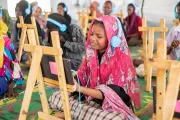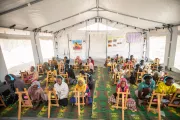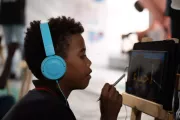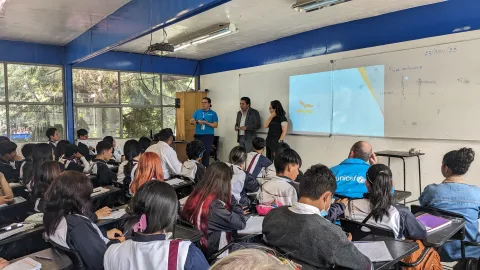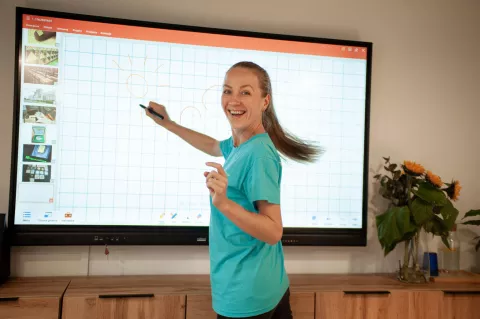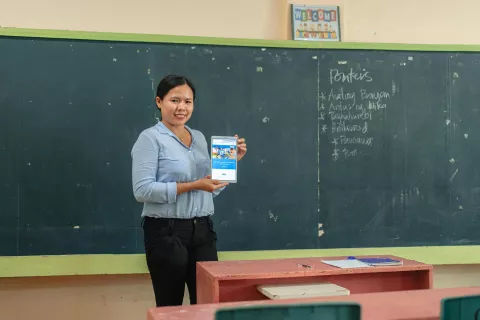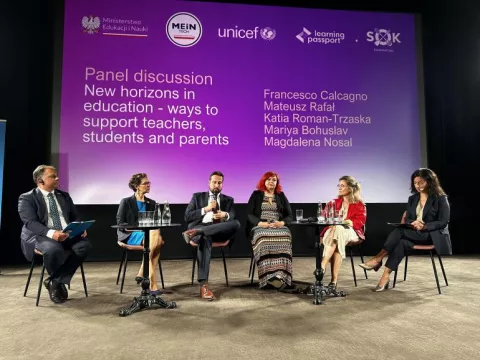Sudan’s 19 Million Learners are Facing the World’s Worst Education Crisis
UNICEF’s Learning Passport is helping to ensure continuity of learning for students displaced by the ongoing war in Sudan
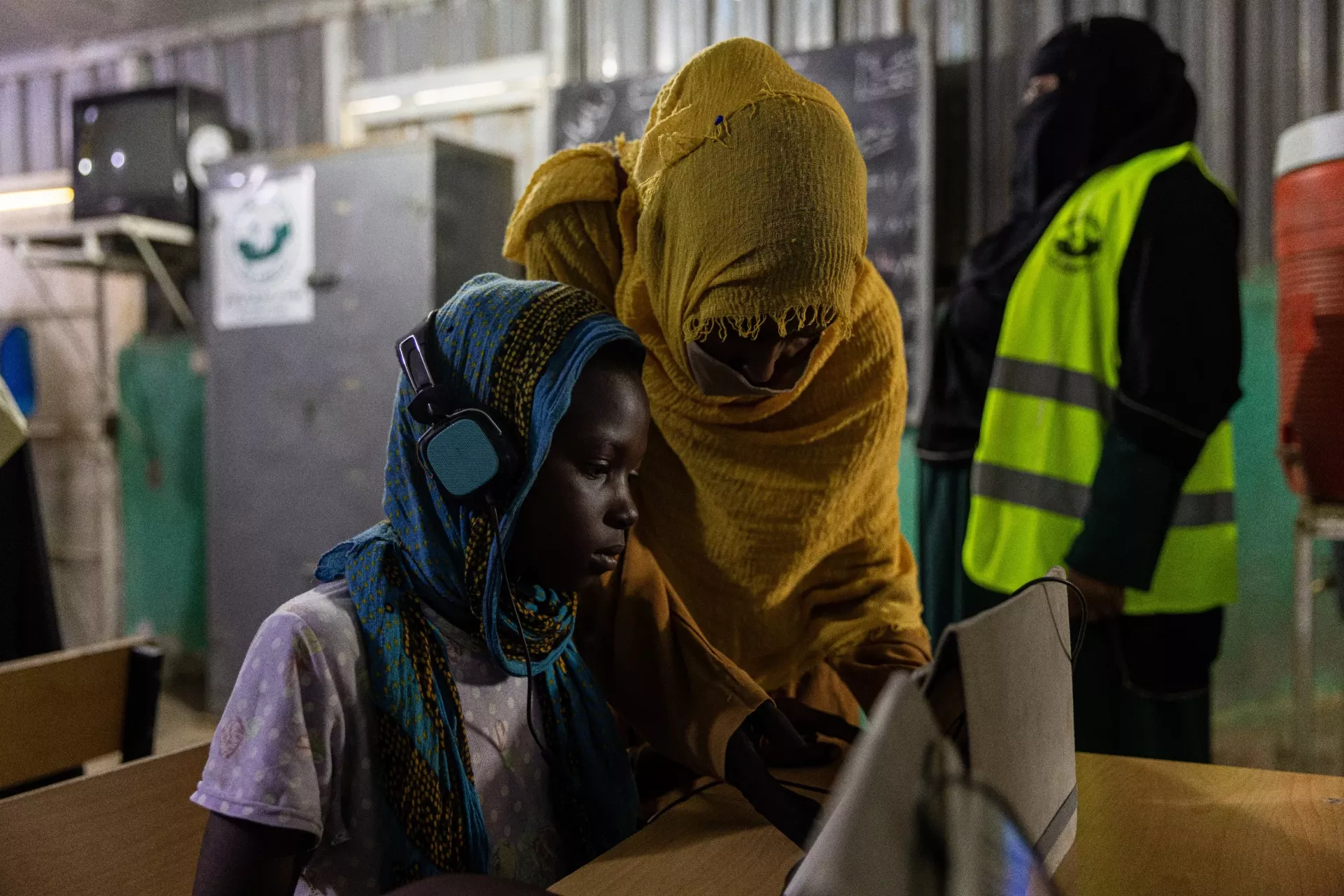
One year after the outbreak of fighting in April 2023, the war in Sudan has become a generational catastrophe for 24 million children (half of Sudan’s population), with the country now home to the world’s largest child displacement crisis – over 4.6 million children have fled their homes in search of safety, food, shelter, and basic services. 25 million people are in dire need of humanitarian assistance, more than half of them children (UN OCHA).
Today, the future of an entire generation is at stake. Prior to the conflict, 7 million children were already out of school. Over the past year, this learning crisis has deepened, with 19 million school-age children now lacking access to formal education, and over 90% of the nearly 23,000 schools are closed or inaccessible. Sudan is now one of the worst education crises in the world. School closures and disrupted education not only deprive children of the right to learn, but also expose them to immediate and long-term dangers such as displacement, child recruitment, child marriage, and sexual violence. Attacks on schools and their use as emergency shelters for displaced families further compromise the safety of children and put enormous pressure on one of the world’s most fragile education systems. Collectively, the war has created a humanitarian catastrophe of epic proportions for children, threatening the future of the country, the region, and beyond.
Yet education is a lifeline for children in emergency settings. Education not only helps to ensure children and young people continue to gain essential knowledge and skills, but also provides them with life-saving protective messages, shelter, nutritious food, water, health care, and hygiene supplies through safe learning spaces. Education also plays a crucial role in children’s mental health, providing a sense of normalcy and structure to help them cope with trauma, and can even support longer term peace-building processes by addressing underlying causes of violence, contributing to social cohesion, fostering inclusion, and building human rights awareness. Especially for the most marginalized, including children with disabilities and those who have been displaced, accessing education in a safe space can provide much needed physical, psychosocial, and cognitive protection that can sustain and save lives.
To support conflict-affected children and adolescents in need of safe learning opportunities, UNICEF has opened Makanna (Arabic for “our space”) centers across Sudan, providing one-stop hubs for structured learning, psychosocial support through recreation and play, protective services, referrals to healthcare, and water, sanitation, and hygiene (WASH) facilities. Digital learning is offered in many Makannas and safe learning spaces (SLS), with solar-powered tablets (Sudan has an average of ten hours of sunshine per day!) enabling access to learning and skills. In addition, UNICEF’s Learning Passport is currently supporting over 35,000 learners in hotspot areas through distance education. In Sudan, the Learning Passport has been zero-rated by the mobile network operators, thus providing children with free access to high-quality digital content based on the national school curricula. UNICEF has also worked with partners to further expand the reach of curricular content through national television broadcasting – enabling quality and portable learning for all crisis-affected children.
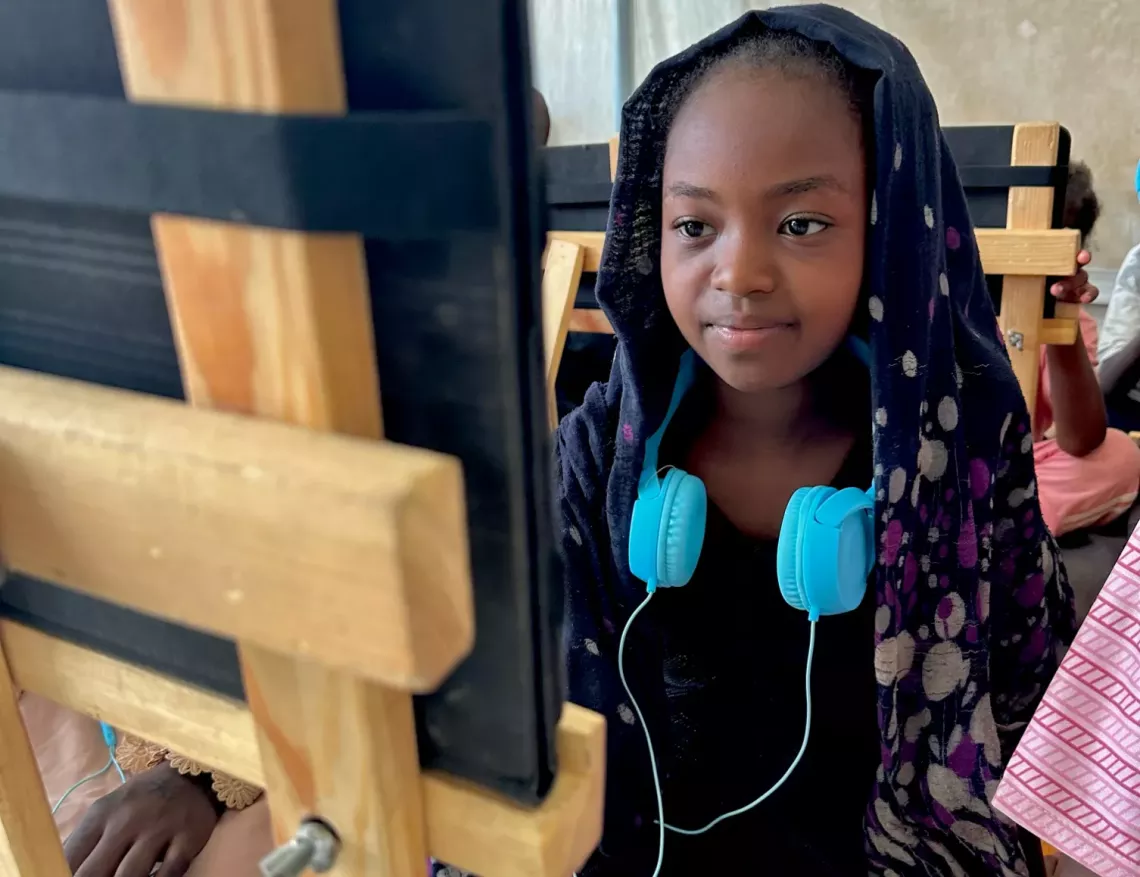
While millions of children are currently displaced within Sudan, nearly 1 million have fled across international borders (25 percent to Egypt), presenting challenges for children seeking to continue their education from outside of the country. In Egypt, building on the national policy to integrate Sudanese children into public services, UNICEF is working with the Ministry of Education and Technical Education to ensure public schools are ready to welcome Sudanese students. To enable continuity of learning, the Learning Passport is also providing Sudanese curricular content that would otherwise be inaccessible, with the offline Learning Passport providing access for refugee schools without internet connectivity. As of April 2024, the Learning Passport is supporting 35,000 learners and 6,700 teachers in Egypt.
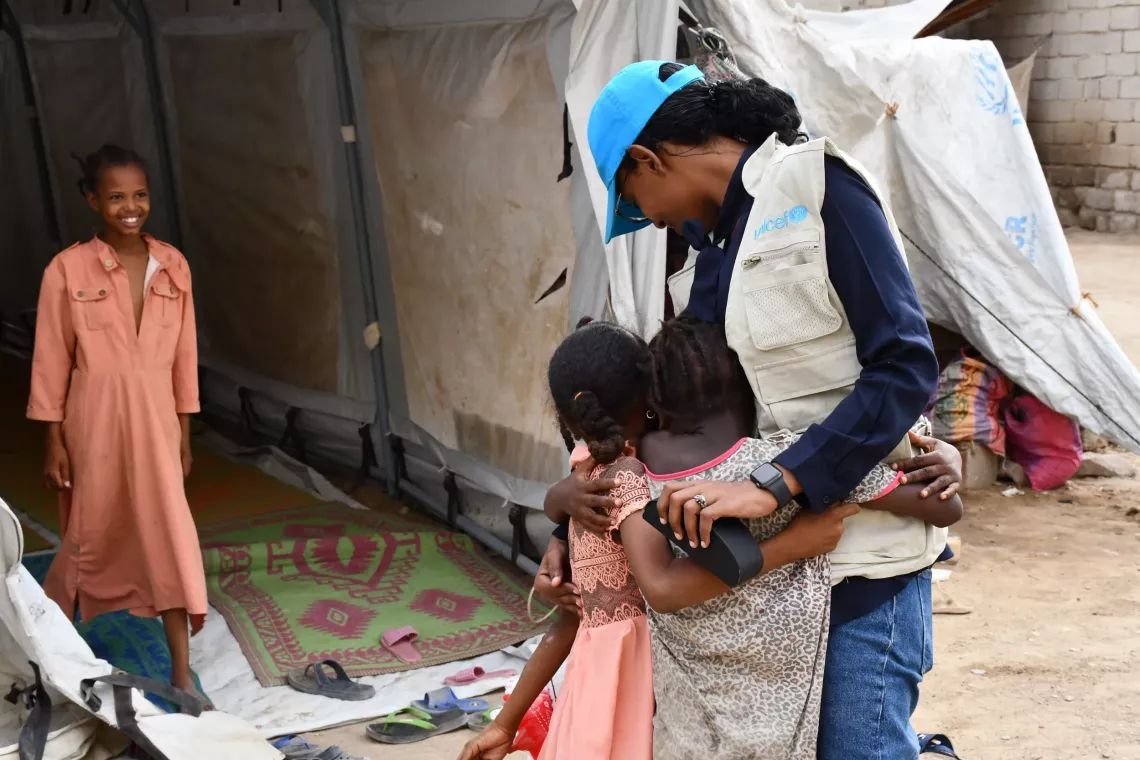
Investment in education is investment towards peace. I will do my best to ensure ALL children in Sudan [can] learn and [return] to learning through the most advanced means!
Rasha, Education Officer, UNICEF Sudan
Children on the move remain ignited to continue learning despite the stress of living through war and displacement. The Learning Passport has helped revitalize their childhoods by providing structured and play-based learning, while keeping them within stimulating safe learning spaces, and has proven to be lifesaving and life-sustaining in emergencies.
Despite immense challenges, continuing to provide quality education and working to ensure the well-being of all children affected by the war in Sudan are critical. Faced with a 96 per cent funding gap and a catastrophic number of school closures, UNICEF calls on partners and the international community to redouble support and resources for the reopening of all schools. Sudan's children call to the world hoping to return to classrooms but all too often, no one answers. Yet answering their call through partnership is possible, and the solutions are well known. Since the war began, more than 870,000 children and caregivers have been reached with lifesaving integrated education assistance across 750 established UNICEF child-friendly safe learning spaces in Sudan.
UNICEF remains committed to scaling and expanding these education efforts to reach more children across all 18 states in Sudan, with parallel efforts underway to scale up the offline digitized Learning Passport in hotspot states (Khartoum, Darfur and Kordofan) to reach 6.4 million school-age children where schools remain shuttered. By rapidly leveraging innovative solutions and strengthening resilience, UNICEF and partners are committed to every child fulfilling their right to education – and preventing the learning catastrophe from deepening even further.
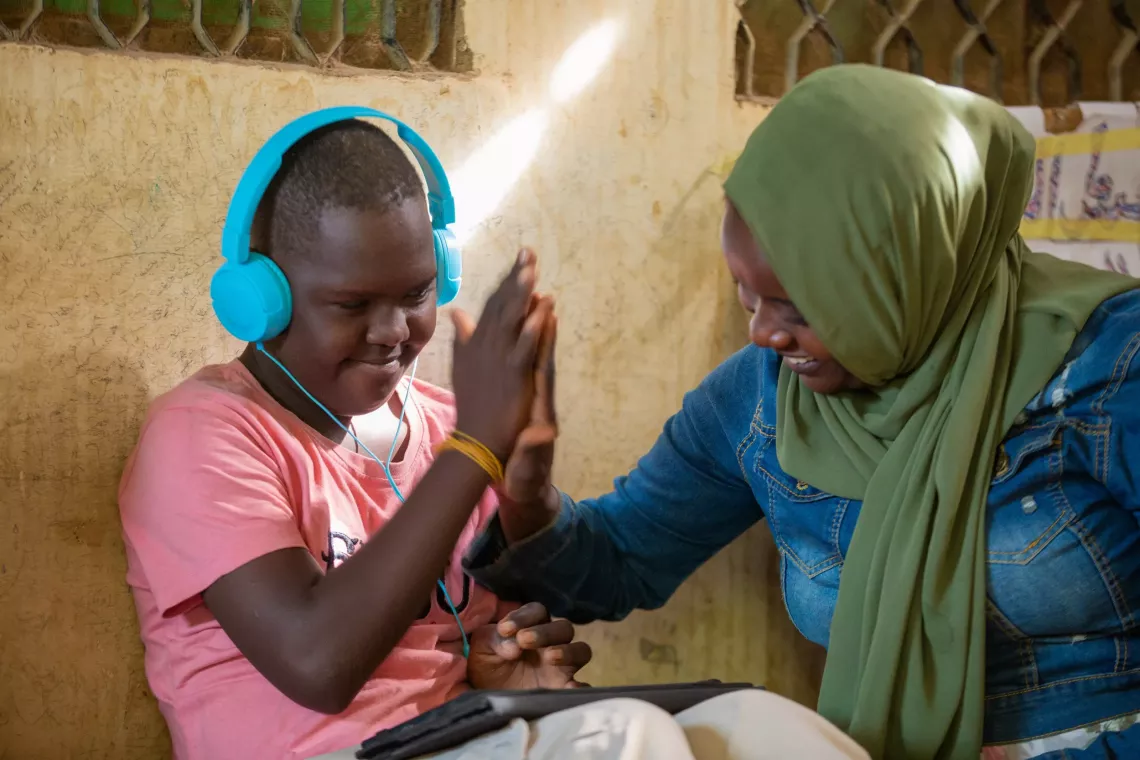
Al-Smany’s favorite part of the day is the UNICEF safe e-learning space in Al-Salam IDP camp. He is the youngest and born with a disability, but it does not stop him from learning.
"I am very independent and accomplish so much!"
Al-Smany (9-years-old), Kassala state
Since its launch in 2020, the Learning Passport has become UNICEF’s flagship digital learning program, helping over 7 million children and young people in 40 countries access quality inclusive education and build the skills they need for a brighter future. By offering a personalized and accessible learning experience, it addresses the educational needs of diverse learners, including those in remote or marginalized communities. To learn more, contact Amee Tolia, atolia@unicef.org
